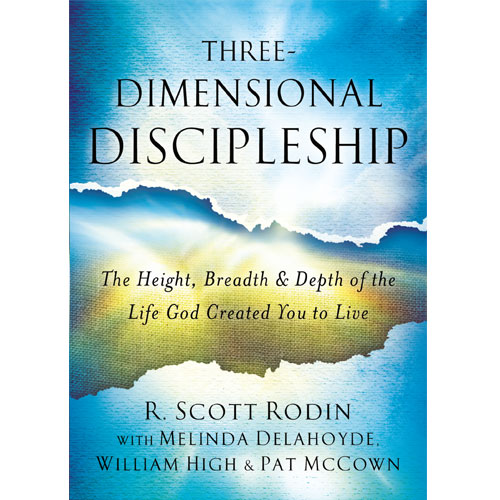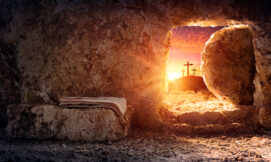Facing Dangers on All Sides

Palestine, 30 A.D. A young rabbi finds himself in the midst of a power struggle between three forces all contending for control of the region. Claiming to be the Messiah, Jesus put himself in direct odds with each of them.
- There were the Zealots. To them Jesus was the promised military and governmental ruler that would overthrow Rome and reestablish David’s physical, geo-political rule. They hoped Jesus was their triumphant leader and in his name they would overthrow the powers that be.
- There was Rome. To the Roman authorities in Palestine Jesus was a nuisance. Rome already had enough gods, they didn’t need another one, especially one claiming authority over everything. Rome’s plan was to either ignore him or put him away if he caused too much trouble.
- There were the established religious authorities. Their goal was to preserve the status quo, and this upstart rabbi was a threat to their way of life, their security and their power. He was one of their own, but they were cautious about his radical teaching and how it might upend everything they had established in the name of God.
Jesus responds to each and we must listen carefully to his message.
To the Zealots Jesus rejected their attempt to co-opt him to their cause or use his message as motivation for their triumphalism. Instead, he introduced them to the ethics of the kingdom of God; loving their enemies, serving their neighbor, acting humbly, caring for the poor and giving generously.
To the Roman authorities Jesus refused to be intimidated, reminding Pilate, “You could have no power at all against Me unless it had been given you from above” (John 19:11). Instead, he announced the coming of the kingdom of God in their midst and in opposition to their attempts to silence him.
To the religious leaders he rebuked their self-centeredness and proclaimed the coming of the kingdom of God in their midst. In his kingdom the church would become the body of Christ and live out his mandate to preach the gospel to the poor; heal the brokenhearted, proclaim liberty to the captives, recovery of sight to the blind,to set at liberty those who are oppressed and to proclaim the acceptable year of the Lord.
Does any of this sound familiar? As the body of Christ, do we not find ourselves in a very familiar situation in the United States in 2021? As image bearers of Christ in our day, we must consider our context and take our lead from the one we follow.
As in Jesus’ time, today there are the modern-day zealots who are trying to co-opt the name of Jesus and the spiritual authority that comes with it to further their political gains. Last week we saw the ugliest side of this version of triumphalism as political passion claimed unique divine authority for the actions of rioters. In their self-righteousness they weaponized Jesus to justify their anger. How will we, as image bearers of Christ, respond?
As in Jesus’s time we will soon witness the inauguration of a new administration that ran on a platform intent on enshrining humanism and its values as its defining ideology. As a result, we can expect policies hostile to the Christian faith, designed to drive Jesus and his followers from the public square and confining them to acts of private piety or locking them away behind church doors. How will we, as ones called to boldly proclaim the reign of his universal kingdom, respond?
And as in Jesus’ time, there is the Church still trying to preserve the status quo. After over 2000 years, it seems we’re still wondering what to do with this Jesus. We have to ask in our day whether we, as the body of Christ in America, have really ever fully embraced the radical ideas of the kingdom of God? Will we respond by taking up our cross and following him? Loving our enemies? Turning the other cheek? Considering others greater than ourselves? Leading with selfless service? Forgiving? Humbling ourselves? We might pray for revival in the body of Christ, but must we not also let these defining marks of the followers of Jesus become our consistent public witness to the world in which we live?
If we are to steward this very dangerous moment in American life, I would challenge all of us to think again about what we will do as those who follow Jesus. Perhaps we need to read again the Sermon on the Mount. Maybe this is a good time to reconsider Jesus’ call to abide in him with such undivided obedience that what flows from us is not triumphalism, protectionism or fear, but the fruit of the spirit; love, joy, peace, patience, kindness, goodness, gentleness, faithfulness, self-control.
To stand with Jesus in our day means standing against the three powers that seek to either co-opt him, exile him or accommodate an impotent version of his teachings. To stand with Jesus today takes incredible courage to reject all of these alternatives and to do the one thing he most called us to do; to love him. Really love him. Love him above everything else. Love him and cleave to him and trust him and follow him unequivocally.
My brothers and sisters, I urge you to steward this chaotic time by rejecting the competing narratives regarding what to do with Jesus, and instead come closer to him, closer than you have ever been. Draw near to him and he will draw near to you. This is a moment of surrender, of confession and sacrifice. This is our time to be the body of Christ, to embrace kingdom values in the face of our nation’s rapidly declining cultural morality. Before we seek to stand up and stand out, we need to kneel and fall down on our faces. Where we have aligned our passions with anything but the cross of Christ, we beg forgiveness. Where we have bought into the anger and vitriol of our day through things we’ve said, thought and done, we need to confess with tears.
And when we feel his forgiving and healing hand on us, we need to rise and walk just as he did in his day, full of grace and truth. That does not mean walking away from the battle, quite the opposite. As steward leaders operating out of a core strength of intimacy with Christ and love for him, we enter the fray head on, not motivated by a political, social or ecclesiastical agenda, but as the image bearers of the crucified and risen Christ.
In these treacherous times, we need stewards who understand their lives are not their own, that they belong to God, and who willingly sanctify their lives back to him for a holy purpose. May it be so with us.





